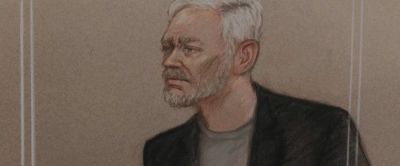War, Dissent and Julian Assange: Why We Must Stop this Extradition

All Global Research articles can be read in 51 languages by activating the “Translate Website” drop down menu on the top banner of our home page (Desktop version).
To receive Global Research’s Daily Newsletter (selected articles), click here.
Visit and follow us on Instagram at @globalresearch_crg and Twitter at @crglobalization. Feel free to repost and share widely Global Research articles.
***
Anyone saluting the courage of Russian media worker Marina Ovsyannikova, who has been arrested following her on-air anti-war protest, should join the campaign to stop the extradition of Julian Assange.
The Supreme Court’s rejection of his appeal bid is grim news for the journalist whose Wikileaks organisation has done more to expose war crimes than any other media outlet this century.
Our government lies to us about war just as relentlessly as the Kremlin does to its citizens, while our major media outlets seldom challenge official narratives, especially on foreign policy.
How else can broadcasters report with a straight face that Boris Johnson has pledged to use a trip to Riyadh to put pressure on Saudi Arabia — not over its own brutal war on Yemen (in which Britain is, after all, deeply complicit) but to condemn Russia’s war in Ukraine.
Ovsyannikova could face jail time for her protest. Her act merits global respect, as does the open letter by thousands of alumni of Moscow State University who have condemned the war on Ukraine, as do the hundreds of protests large, small and individual by Russians standing up for peace — a woman who held up the Biblical commandment Thou Shalt Not Kill outside Moscow’s Cathedral of Christ the Saviour; a man led away by police in Novosibirsk simply for holding up a blank piece of paper in a reference to censorship.
But any British politician condemning Russia’s crackdown should be asked what they have done to help free Assange, who could be imprisoned in the US for 175 years.
Assange is not a US citizen, let alone an employee of the US military. He is not accused of having leaked classified information. He is accused of having published classified information that was passed to him.
The airwaves are now full of the horror being inflicted on Ukrainians by Russian bombers and artillery. So we should think back to the content of the Afghan and Iraq war logs published by Wikileaks.
The horrendous civilian death toll from US bombings in Afghanistan. Cockpit camera footage showing US helicopter pilots laughing as they machine-gunned unarmed civilians in Iraq.
The victims of US war crimes are no less worthy of the world’s attention than Russia’s. Those who have helped expose those crimes are as deserving of protection.
Yet the British state has engaged in a sustained campaign to break Julian Assange.
It has held him in conditions amounting to torture. It imprisoned him for skipping bail though the charges he had originally faced had long since been dropped.
Now it plans to hand him over for exemplary punishment intended as a message for journalists everywhere, of whatever nationality: expose our war crimes and the long arm of the United States will find you and make you pay.
The Supreme Court’s ruling comes as freedom to dissent is under extraordinary attack. Media platforms like Facebook and Google are calmly removing swathes of content critical of the Western narrative on Russia’s war. Parliament is pushing through legislation that will subject peaceful protesters in Britain to the same risk of arrest that we condemn in Russia.
And we learn from a member of Labour’s national executive that the supposed mass party of the left is wading through members’ personal correspondence looking for “unacceptable views” it can use to get them “suspended — or worse.” This is not some internal matter, of interest only to Labour members. It will have a poisonous effect across the public realm.
There has rarely been a greater need to stand up for free speech, the right to challenge authority and to express unpopular opinions. To question the huge power of privately owned comms platforms to censor and silence.
And for Assange, time may be running out. Britain’s courts will not defend his rights. His extradition must be stopped on the streets, through protest and direct action.
*
Note to readers: Please click the share buttons above or below. Follow us on Instagram, @globalresearch_crg and Twitter at @crglobalization. Feel free to repost and share widely Global Research articles.
Featured image: Julian Assange court sketch, October 21, 2019, supplied by Julia Quenzler.

